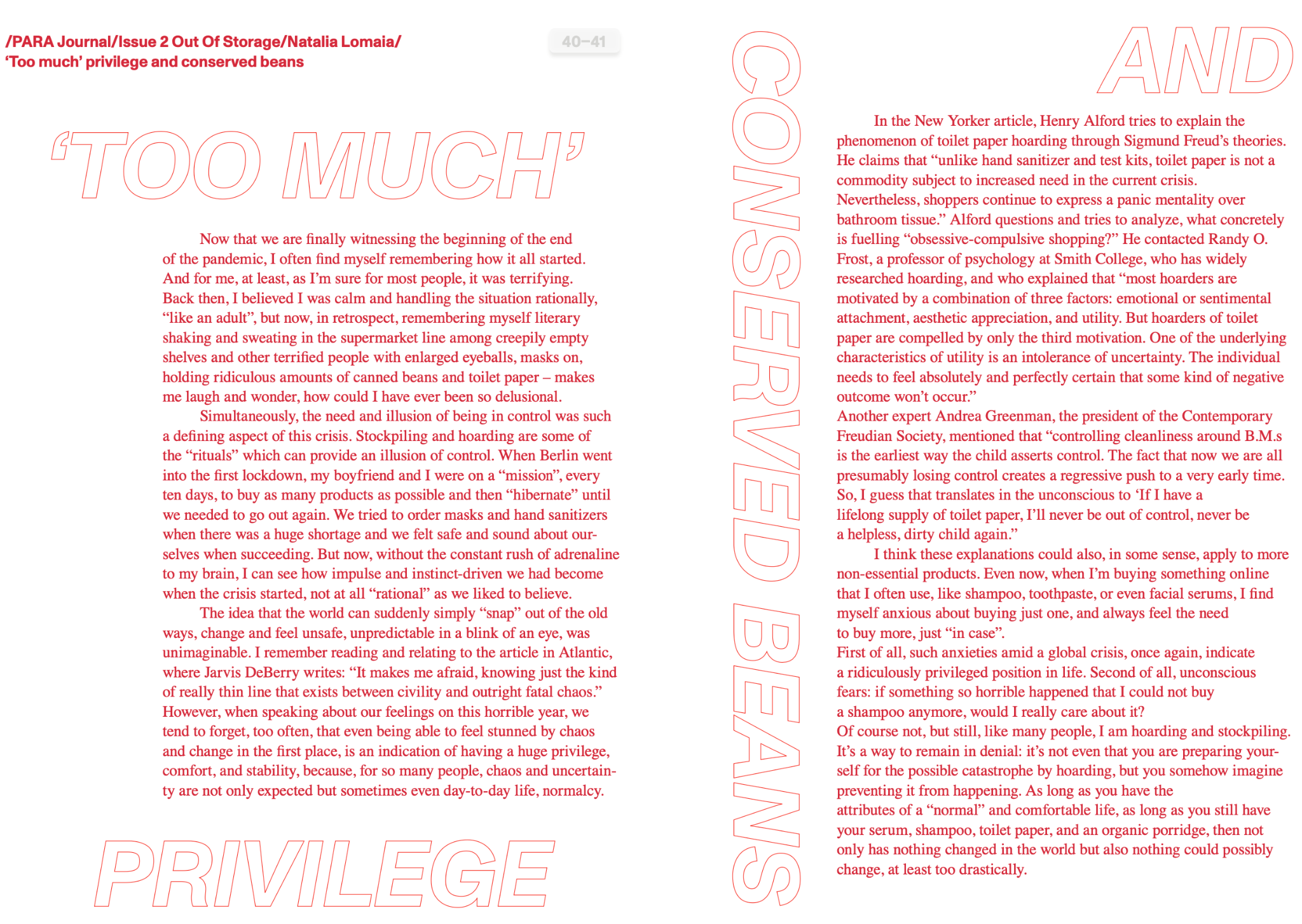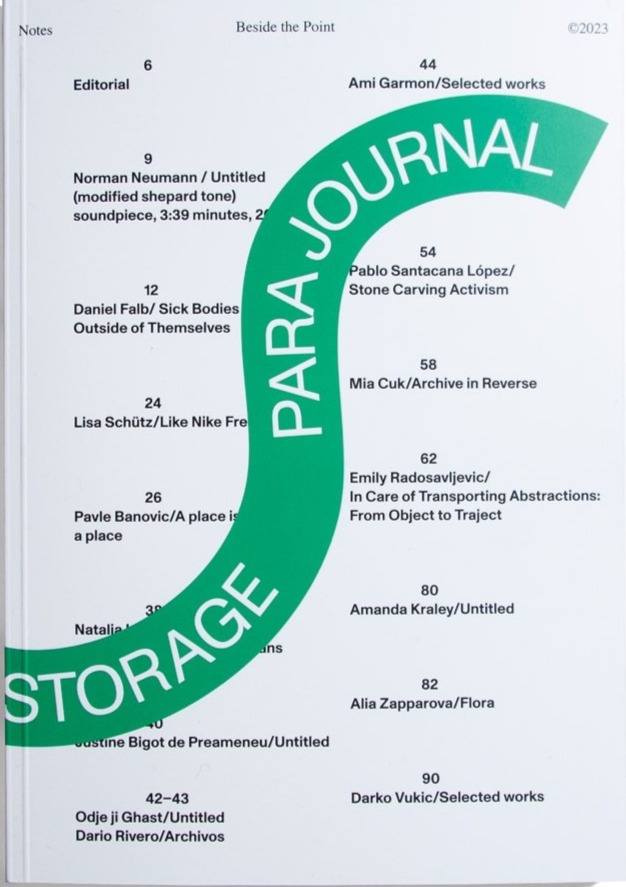Para Journal, Issue Two
Personal Essay;
Title: "Too much" Privilege and Conserved Beans
Now that we are finally witnessing the beginning of the end of the pandemic, I often find myself remembering how it all started. And for me, at least, as I’m sure for most people, it was terrifying. Back then, I believed I was calm and handling the situation rationally, “like an adult.” Now, in retrospect, remembering myself literally shaking and sweating in the supermarket line among creepily empty shelves and other terrified people with enlarged eyeballs, masks on, holding ridiculous amounts of canned beans, rice, and toilet paper - makes me laugh and wonder, how could I have ever been so delusional.
Simultaneously, the need and illusion of being in control was such a defining aspect of this crisis. Stockpiling and hoarding are some of the “rituals” which can provide an illusion of control. When Berlin went into the first lockdown, my boyfriend and I were on a “mission” every ten days to buy as many products as possible and then “hibernate” until we needed to go out again. We tried to order masks and hand sanitizers when there was a huge shortage, and we felt safe and sound about ourselves when succeeding. But now, without the constant rush of adrenaline to my brain, I can see how impulse and instinct-driven we had become when the crisis started, not at all “rational” as we liked to believe.
The idea that the world can suddenly simply “snap” out of the old ways, change and feel unsafe, unpredictable in a blink of an eye was unimaginable. I remember reading and relating to the article in the Atlantic, where Jarvis DeBerry writes: ”It makes me afraid, knowing just the kind of really thin line that exists between civility and outright fatal chaos.” However, when speaking about our feelings on this horrible year, we tend to forget, too often, that even being able to feel stunned by chaos and change in the first place is an indication of having a huge privilege, comfort, and stability, because, for so many people, chaos and uncertainty are not only expected but sometimes even day-to-day life, normalcy.
In the New Yorker article, Henry Alford tries to explain the phenomenon of toilet
paper hoarding through Sigmund Freud’s theories. He claims that “unlike hand
sanitizer and test kits, toilet paper is not a commodity subject to increased need in the current crisis. Nevertheless, shoppers continue to express a panic mentality over bathroom tissue.” Alford tries to analyze, what concretely is fuelling “obsessive-compulsive shopping?” He contacted Andrea Greenman, the president of the Contemporary Freudian Society. She mentioned that “controlling cleanliness around B.M.s is the earliest way the child asserts control. The fact that now we are all presumably losing control creates a regressive push to a very early time. So, I guess that translates in the unconscious to ‘If I have a lifelong supply of toilet paper, I’ll never be out of control, never be a helpless, dirty child again.”
I think these explanations could also, in some sense, apply to more non-essential
products. Even now, when I’m buying anything online that I often use, like shampoo, toothpaste, or even facial serums, I find myself anxious about buying just one and always feel the need to buy more, just “in case.” First of all, such anxieties amid a global crisis, once again, indicate a ridiculously privileged position in life. Second of all, unconscious fears: if something so horrible happened that I could not buy shampoo anymore, would I really care about it? Of course not, but still, like many people, I am hoarding and stockpiling. But the point is: It's not a precautionary measure, as we often tend to think, but rather, on the contrary, It’s a way to remain in denial: it’s not even that you are preparing yourself for the possible catastrophe by hoarding, but you somehow imagine preventing it from happening. As long as you have the attributes of a “normal” and comfortable life, as long as you still have your serum, shampoo, toilet paper, organic porridge, sugar-free almond milk, and fresh avocado, then not only has nothing changed in the world but also nothing could possibly change, at least too drastically.


0 Comments Add a Comment?